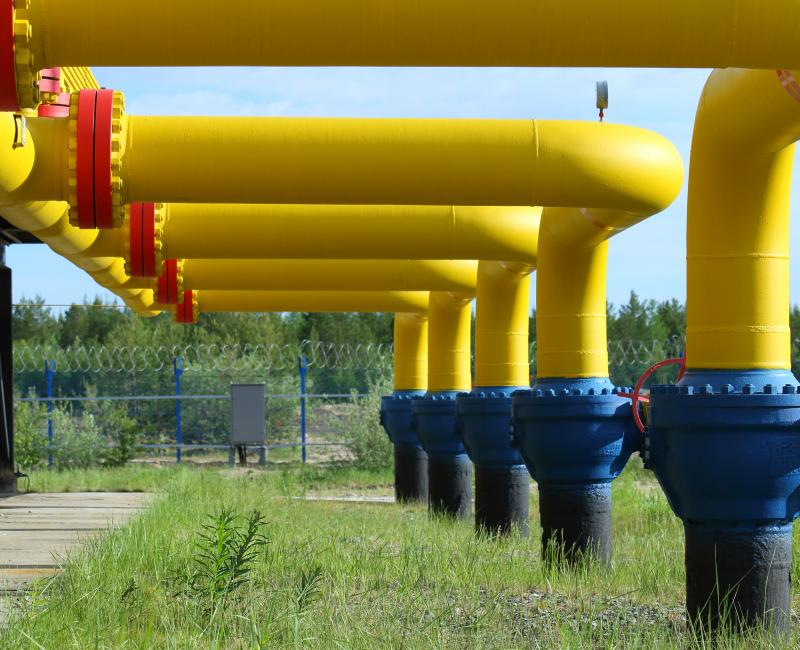Consultation on amended statutory documents of ENTSO-E
Consultation on amended statutory documents of ENTSO-E
Notice of 12 April 2021
The Agency has been informed by the European Commission that the proposed changes to the Articles of Association and other statutory documents of ENTSO-E would still need to be further adapted, inter alia in light of the obligations stemming from the Trade and Cooperation Agreement with the UK, and which would therefore require a resubmission of the afore-mentioned ENTSO-E documents.
For reasons of procedural efficiency, the Agency has therefore decided to halt its proceedings on the proposed changes to ENTSO-E's Articles of Association and other statutory documents.
Any comments which the Agency has meanwhile received in the course of the current proceedings will be taken into account when the Agency will examine the finalised proposal of statutory documents, once the above-mentioned further implementing measures have been taken, and to the extent that they will remain relevant in light of the possible additional changes made to the documents submitted. In case relevant changes would be made to any of the statutory documents consulted, the Agency will allow for a new consultation, so as to enable additional comments to the Agency.
Original consultation of 25 March
ACER consults on amended statutory documents of ENTSO-E, in accordance with Article 29 of Regulation (EU) 2019/943 of 5 June 2019 on the internal market for electricity.
This consultation is addressed to the organisations representing all stakeholders, in particular system users, including consumers.
Replies to this consultation should be submitted to ACER by 12 April 2021, 09:00 hrs (CET).
For any questions, please contact us on: ENTSO-E-statutes-amendments(at)acer.europa.eu
Consultation on amended statutory documents of ENTSO-E
Consultation documents
Consultation on amended statutory documents of ENTSO-E
Evaluation of responses and responses
Not yet available.
Expert group on wholesale energy market trading
Expert group on wholesale energy market trading
Scope of the group

This group was active from 2017-2020 with the goal of advising the Agency on REMIT policy matters, including compliance with the obligation on market participants to disclose inside information. The group also advised the Agency on other EU regulations impacting energy trading and market functioning regulation on energy markets, including financial market regulation and finally, on the REMIT Regulation more broadly in order to develop proposals for any future review.
The group was composed of the following members (in alphabetical order):
-
Ms Volinka Augustenborg
-
Ms Camilla Berg
-
Ms Christine Hillion
-
Mr Karl-Peter Horstmann
-
Mr Robert Jambrich
-
Mr Pasi Kuokkanen
-
Ms Giulia Migueles-Pereyra
-
Mr Jethro van Hardeveld
-
Mr Pablo Villaplana
-
Mr Bernhard Walter
-
Mr Mark Csete (observer for ENTSO-E)
-
Ms Kathrine Stannov (observer for ENTSOG)
Minutes
-
 19 September 2018
19 September 2018
Ad hoc expert group on energy commodity derivatives
Ad hoc expert group on energy commodity derivatives
Scope of the group

This group was active from 2015-2016 with the goal of advising the Agency and contributing to its work on issues related to energy commodity derivatives.
Ad hoc expert group on energy commodity derivatives
Members
-
Mr Erik Korsvold
-
Mr Darren Lampert
-
Mr Rainer Landgraf
-
Mr Vince McCallion
-
Mr Iain McGowan
-
Mr Gideon McLean
-
Mr Riccardo Rossi
-
Mr Jorge Simão
-
Mr Simon Smith
-
Mr Jaroslaw Ziębiec
PC_2021_E_02 Public consultation on the cross-border capacity allocation methodologies for the exchange of balancing capacity in the Hansa, Core and Baltic regions
PC_2021_E_02 Public consultation on the cross-border capacity allocation methodologies for the exchange of balancing capacity in the Hansa, Core and Baltic regions
What is it about?
Early in 2021, the National Regulatory Authorities for energy from the Hansa, Core and Baltic regions asked the European Union Agency for the Cooperation of Energy Regulators (ACER) to decide on the respective market-based cross-border capacity allocation process for the exchange of balancing capacity in their region.
This request follows the Article 41 of the Regulation (EU) 2017/2195 establishing a Guideline on Electricity Balancing (EB Regulation).
Additionally, regulators from the Core region asked ACER to decide on the regional cross-border capacity allocation process for the exchange of balancing capacity to be based on economic efficiency in accordance with Article 42 of the EB Regulation.
ACER is now collecting comments from stakeholders in order to take an informed decision.
All interested parties are invited to submit their inputs by 2 May 2021, 23:59 hrs (CET).
Would you like to find out more on the topic? Join the ACER Public Workshop on 20 April (10 am - 12 pm).
Background information
The cross-border capacity allocation methodologies ensure efficient, transparent, and non-discriminatory capacity allocation for the exchange of balancing capacity or sharing of reserves.
The market-based process applies in case the allocation takes place not more than a week in advance of the provision of balancing capacity, while the process based on economic efficiency applies in case the allocation takes place more than one week in advance of the provision of balancing capacity.
PC_2021_E_02 Public consultation on the cross-border capacity allocation methodologies for the exchange of balancing capacity in the Hansa, Core and Baltic regions
Consultation documents
Enter the Public Consultation.
Privacy Statement.
PC_2021_E_02 Public consultation on the cross-border capacity allocation methodologies for the exchange of balancing capacity in the Hansa, Core and Baltic regions
Evaluation of responses and responses
Not available yet.
PC_2021_E_03 Public consultation on reasoned amendments to the Capacity Allocation and Congestion Management Regulation (CACM 2.0)
PC_2021_E_03 Public consultation on reasoned amendments to the Capacity Allocation and Congestion Management Regulation (CACM 2.0)
What is it about?
On 22 January 2020, ACER received a request by the European Commission to provide a recommendation on reasoned amendments on the Regulation (EU) 2015/1222 establishing a Guideline on Capacity Allocation and Congestion Management ('CACM Regulation') in accordance with Article 60(3) of the Regulation (EU) 2019/943 on the internal market for electricity ('Electricity Regulation'). The CACM Regulation provides binding rules for the implementation and operation of an EU-wide single market coupling and capacity calculation in the day-ahead and intraday timeframes.
ACER is launching this public consultation on proposed amendments to the CACM Regulation with the objective to gather views and information from all stakeholders. Inputs received from the consultation will inform ACER in preparing the final recommendation to the European Commission towards the end of 2021.
All interested parties are invited to submit their input to the consultation by 10 June 2021, 23:59 hrs (CET).
ACER is also organising two workshops on 10 May with the purpose of introducing proposed amendments and assist stakeholders in providing feedback to the public consultation. Stakeholders can register for the workshops here:
10 May 2021, 10.00 - 11.30 CET Workshop 1 European market coupling organisation & operation
10 May 2021, 15.00 - 16.30 CET Workshop 2 Capacity calculation and bidding zone review
Please note that attendance to these workshops is limited to a maximum of one seat per organisation and will be allocated on a first-come-first-serve basis.
A recording will be available after the event.
PC_2021_E_03 Public consultation on reasoned amendments to the Capacity Allocation and Congestion Management Regulation (CACM 2.0)
Consultation documents
Enter the Public Consultation.
Privacy Statement.
PC_2021_E_03 Public consultation on reasoned amendments to the Capacity Allocation and Congestion Management Regulation (CACM 2.0)
Evaluation of responses and responses
Not ready yet.
Gas tariffs reports: ACER recommends Lithuania to better justify domestic tariffs and mechanisms to compensate the discount granted to Klaipėda LNG entry

Gas tariffs reports: ACER recommends Lithuania to better justify domestic tariffs and mechanisms to compensate the discount granted to Klaipėda LNG entry
What is it about?
In its second report on the implementation of the European Union (EU) Network Code on Harmonised Transmission Tariff Structures for Gas in Lithuania, the EU Agency for the Cooperation of Energy Regulators (ACER) recommends the Lithuanian national regulatory authority for Energy (VERT) to better substantiate that no discrimination is induced by the difference between the two tariffs applied to domestic consumers. The Agency also recommends to provide a description and a justification for the mechanisms used to compensate the discount granted to Klaipėda LNG entry, in accordance with the Network Code to improve the Lithuanian security of supply.
VERT proposes a postage stamp reference price methodology (RPM). This RPM should in theory be simple and should lead to equalised domestic and cross-border exit tariffs. VERT however applies several asset-cost splits and a complex mechanism to compensate the discount granted to Klaipėda LNG entry. These additional complexities aim at improving the cost-reflectivity of the tariffs and at limiting cross-subsidies between domestic and cross-border users. They lead to differentiated tariffs among domestic exits and among cross-border exits. The Agency recommends VERT to publish additional information and to clarify the legal base justifying these complexities.
VERT shall take a motivated decision by 17 July 2021.
Access the report.
Find out more and access all ACER reports on national tariff consultation documents.